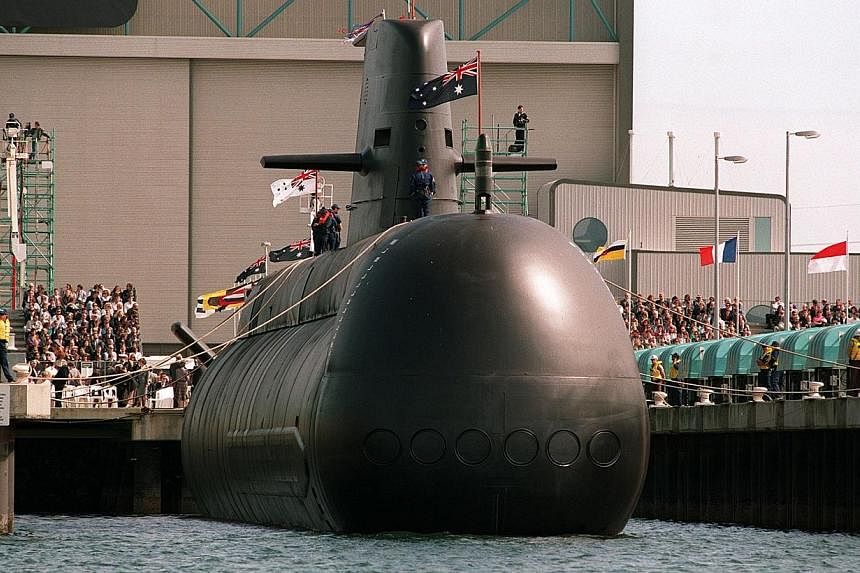TOKYO (AFP) - Australia on Thursday backed Prime Minister Shinzo Abe's drive to expand the use of Japan's military, hailing it as a "more normal defence posture", a day after Tokyo and Canberra stepped up ties.
Mr Abe is pushing to reinterpret Japan's strict pacifist constitution to allow its well-equipped armed forces to fight in defence of an ally, something currently barred.
But he faces opposition at home from those attached to the decades-old constitutional ideal, as well as criticism from China, which accuses him of seeking to remilitarise Japan.
"Australia can see great benefits to our country and to our region, should Japan continue to play a greater constructive role in global and regional peace and security," Australian Foreign Minister Julie Bishop said in Tokyo. "We certainly support Japan working towards a more normal defence posture to help it play a greater global and regional role," she told a news conference.
Referring to military cooperation in past peace-keeping operations in countries including Iraq and South Sudan, Ms Bishop said: "Any decision by Japan to exercise that right to collective self-defence would only help our cooperation grow stronger."
The comments came hours after Ms Bishop, together with Defence Minister David Johnston, met with their Japanese counterparts Fumio Kishida and Itsunori Onodera and agreed to step up their alliance.
The remaking and strengthening of relations is part of a wider regional pattern as countries warily eye China's growing assertiveness, including in rows that have flared badly with Vietnam, the Philippines and Japan.
Mr Johnston said on Thursday that security and defence cooperation is "very, very important to Australia. In fact it is the central pillar of our bilateral relationship." But he brushed off suggestions that Australia, Japan and the United States are looking to control the Asia Pacific region, saying humanitarian and disaster relief operations were the ultimate aim of collaborations.
"We have a very close and productive relationship with China and I will be in China later this year... discussing many of the issues that we've also discussed here," he said.
"The relationship between China and Australia is not mutually exclusive. Australia... has a very strong and successful relationship with China and with Japan," he said. But he added: "One thing I should emphasise is that we do want to see territorial disputation resolved according to international law, that is fundamentally, very, very significant."
"In the South China Sea and the East China Sea, things must be resolved through negotiation, disputation must be resolved around the table and pursuant to the international law," he said.

